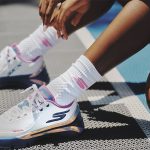S&P Global Ratings lowered the debt ratings on Qurate Retail, Inc., the parent of QVC and HSN, due to weaker-than-expected results as profitability and cash flow generation continued to be pressured in the latest third quarter ended September 30.
S&P said that with customer counts falling over 20 percent year-over-year and below pre-pandemic levels, the company faces uncertain business recovery prospects. In S&P’s view, operating headwinds, recessionary trends and a hefty debt load present risks to the company’s turnaround plans.
S&P’s businesses also include Zulily, Ballard Designs, Frontgate, Garnet Hill, and Grandin Road.
S&P lowered its issuer credit rating on Qurate two notches to ‘B-‘ from ‘B+’. It also assigned its ‘B-‘issuer credit rating to Liberty Interactive LLC, the obligor on some of the corporate-level unsecured debt, to enhance transparency. Also lowered was the issue-level rating on subsidiary QVC Inc.’s secured debt to ‘B+’ from ‘BB’. The recovery ratings remain ‘1’.
The outlook is negative, reflecting S&P’s assessment of Qurate’s uncertain business recovery prospects. S&P said it could lower the rating within the next 12 months if the company is unable to achieve significant progress with its transformation plan or if free cash flow generation prospects do not rebound substantially and sustainably to allow Qurate to address its high debt burden in the context of a rising interest rate environment.
S&P said in its analysis, “The downgrade reflects our view that Qurate Retail Inc.’s business prospects have weakened amid the ongoing deterioration in its operating performance. Customer count declined in the third quarter year over year as the company continued to face significant supply chain disruptions which caused canceled orders. In particular, it experienced a significant pullback in orders by repeat customers compared to 2021, who represent about 90 percent of total purchases. The deterioration highlights the challenges the company’s business model is facing amid scarce discretionary spending and the evolving way in which consumers are interacting with TV viewership. The company recognized an impairment charge of about $3 billion related to some of its business goodwill and trade names in the third quarter, underscoring the longer-term challenges the business model is facing.
“In our view, Qurate has had limited ability to effectively adjust its merchandising strategy as part of its wide-reaching turnaround. We believe the new management team’s focus on implementing material transformation plans to resolve logistical challenges and merchandising strategies is key to preserving market share. We expect competitive pressures to remain significant and the company’s performance to remain vulnerable to weakening macroeconomic conditions, with our domestic economist’s base case calling for a shallow recession in 2023. To reflect these challenges, we have revised our business risk assessment one category to weak from fair.
“Near-term profitability and cash flow weakness will continue to erode credit metrics in 2022. Qurate’s operating margins turned negative in the third quarter as the company as a whole reported more than a 300-basis-point deterioration in gross margin year over year, with free operating cash flow of negative $105 million year to date. Margins continued to be constrained by outsize fulfillment and freight costs due to logistical challenges, in particular, the fire that occurred at one of the company’s fulfillment centers in December 2021. While its inventory position has improved sequentially during the third quarter, we expect a weak margin in 2022 and continued margin pressure through at least 2023 as easing supply chain costs are partially offset by investments in turnaround initiatives and a weak demand environment. We expect Qurate’s adjusted leverage to remain in the high-5.0x area in 2022, improving to about 5.0x in 2023 but still up more than a turn from 2021.
“Our calculation of Qurate’s leverage reflects its debt levels excluding cash on hand and our adjustments including operating lease liabilities. In 2020, the company paid nearly $1.3 billion in special cash dividends to its shareholders and issued approximately $1.3 billion of preferred stock, which we include in our calculation of its adjusted debt due to the terms of the equity. The company has a publicly stated financial policy of maintaining leverage of less than 2.5x at QVC Inc. by the company’s calculations.
“To preserve profit, the company is focusing on managing costs over the next two years including through cost savings in marketing and reducing inventory levels. We believe there is significant execution risk associated with this plan to drive profitability while keeping sales stable, which we believe could result in cash flow generation well below historical levels.
“While we expect the company to repay the draws under its revolver over the coming quarters and free operating cash flow to return to positive in 2023, we believe this rebound in performance is critical to keeping the capital structure sustainable given the reported high debt burden of more than $6 billion in the context of rising interest rates.
“Due to the anticipated weaker credit measures and volatile operating results, we revised our financial risk profile assessment one category to highly leveraged from aggressive.
“Longer-term headwinds such as cord-cutting and declining TV viewership trends could accelerate. Qurate generates a significant portion of its revenue from TV viewership, which is in secular decline due to cord-cutting and other factors. We also foresee some execution risks as the company shifts away from TV viewership in a cost-effective manner, but we recognize that it has adequate financial resources to attempt to expand its digital and mobile content.
“Furthermore, Qurate remains susceptible to intensified competitive pressures from pure e-commerce players that could require it to hasten its promotional cadence to sustain its sales while there are execution risks associated with the secular changes it is navigating and the uncertain outcome of its current transformation plan.
“Intense margin compression could pressure Qurate’s free operating cash flow (FOCF) and reduce its liquidity. We continue to assess the company’s liquidity as adequate, given the cash balances and availability under its $3.25 billion revolver. Year to date, the company entered into several sale-leaseback transactions to monetize real estate assets for an aggregate amount of about $685 million after tax. In addition, the company has collected about $250 million of insurance proceeds in 2022 following the fire in its fulfillment center.
“Among the staggered debt maturities within the next five years, $214 million senior secured notes are due in March 2023, $600 million are due in April 2024, with about $550 to 600 million of debt due each year thereafter. We expect the company to favor debt repayment over shareholder returns for at least the next few years. This is given near-term debt maturities, which we expect it will repay with cash on hand and revolver borrowings in the coming months.
“The negative outlook reflects Qurate’s uncertain business recovery prospects and tightening liquidity if it fails to return to healthy free cash flow generation.”














